Message From Our President

Dear Students, Faculty, Staff and Friends,
I am pleased to present to you this Guide to our plans for the upcoming fall semester and reopening of our campuses. In form and in content, this coming semester will be like no other. We will live differently, work differently and learn differently. But in its very difference rests its enormous power.
The mission of Yeshiva University is to enrich the moral, intellectual and spiritual development of each of our students, empowering them with the knowledge and abilities to become people of impact and leaders of tomorrow. Next year’s studies will be especially instrumental in shaping the course of our students’ lives. Character is formed and developed in times of deep adversity. This is the kind of teachable moment that Yeshiva University was made for. As such, we have developed an educational plan for next year that features a high-quality student experience and prioritizes personal growth during this Coronavirus era. Our students will be able to work through the difficulties, issues and opportunities posed by our COVID-19 era with our stellar rabbis and faculty, as well as their close friends and peers at Yeshiva.
To develop our plans for the fall, we have convened a Scenario Planning Task Force made up of representatives across the major areas of our campus. Their planning has been guided by the latest medical information, government directives, direct input from our rabbis, faculty and students, and best practices from industry and university leaders across the country. I am deeply thankful to our task force members and all who supported them for their tireless work in addressing the myriad details involved in bringing students back to campus and restarting our educational enterprise.
In concert with the recommendations from our task force, I am announcing today that our fall semester will reflect a hybrid model. It will allow many students to return in a careful way by incorporating online and virtual learning with on-campus classroom instruction. It also enables students who prefer to not be on campus to have a rich student experience by continuing their studies online and benefitting from a full range of online student services and extracurricular programs.
In bringing our students back to campus, safety is our first priority. Many aspects of campus life will change for this coming semester. Gatherings will be limited, larger courses will move completely online. Throughout campus everyone will need to adhere to our medical guidelines, including social distancing, wearing facemasks, and our testing and contact tracing policies. Due to our focus on minimizing risk, our undergraduate students will begin the first few weeks of the fall semester online and move onto the campus after the Jewish holidays. This schedule will limit the amount of back and forth travel for our students by concentrating the on-campus component of the fall semester to one consecutive segment.
Throughout our planning, we have used the analogy of a dimmer switch. Reopening our campuses will not be a simple binary, like an on/off light switch, but more like a dimmer in which we have the flexibility to scale backwards and forwards to properly respond as the health situation evolves. It is very possible that some plans could change, depending upon the progression of the virus and/or applicable state and local government guidance.
Before our semester begins, we will provide more updates reflecting our most current guidance. Please check our website, yu.edu/fall2020 for regular updates. We understand that even after reading through this guide, you might have many additional questions, so we will be posting an extensive FAQ section online as well. Additionally, we will also be holding community calls for faculty, students, staff and parents over the next couple of months.
Planning for the future during this moment has certainly been humbling. This Coronavirus has reminded us time and time again of the lessons from our Jewish tradition that we are not in full control of our circumstances. But our tradition also teaches us that we are in control of our response to our circumstances. Next semester will present significant challenges and changes. There will be some compromises and minor inconveniences--not every issue has a perfect solution. But faith and fortitude, mutual cooperation and resilience are essential life lessons that are accentuated during this period. And if we all commit to respond with graciousness, kindness, and love, we can transform new campus realities into profound life lessons for our future.
Deeply rooted in our Jewish values and forward focused in preparing for the careers and competencies of the future, we journey together with you, our Yeshiva University community, through these uncharted waters. Next year will be a formative year in the lives of our students, and together we will rise to the moment so that our students will emerge stronger and better prepared to be leaders of the world of tomorrow.
Best Wishes,
Ari Berman

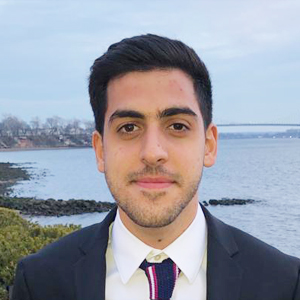 Aharon worked in Congressman Adriano Espaillat’s office, helping Rep. Espaillat serve the constituents of New York State’s 13th congressional district, which includes parts of Bronx and New York counties. He did pretty much everything from conducting research on new legislation and translating texts from English to Spanish to handling the nitty-gritty of preparing and attending events.
“When the day ended,” he said, “I felt satisfaction that I helped people who are in very disadvantageous positions. Every day, I interacted with constituents facing difficult situations, and I felt helpful when I could be part of the process of getting to tangible solutions that are going to end their suffering.”
That sense of accomplishment meshes perfectly with the values he believes a YU education promotes. “What is unique about YU’s education is teaching you to give back to the community. YU provides the tools both to be successful and to show you that within your personal success is room to help others.” He adds that “what I did in my internship is learn how to become a better professional and at the same time help others.”
Through his work, he also experienced a profound understanding of life in the United States. “As an international student from Venezuela, something that shocked me was to see how constituents need and depend on the different benefits that the government provides. The belief from outside is that in America, there are enough opportunities to cover the necessities of everyone. However, this work demonstrated me that it is not necessarily the case. Constituents struggle to cover basic needs like housing and health care.
“Moreover, this work also gave me an exposure to see first-hand how policies made by a few affect a lot of people. During the semester, I was a little bit isolated from what was happening outside. But now, when I read the news, I kind of see a wider image of the situations taking place in New York.”
Aharon worked in Congressman Adriano Espaillat’s office, helping Rep. Espaillat serve the constituents of New York State’s 13th congressional district, which includes parts of Bronx and New York counties. He did pretty much everything from conducting research on new legislation and translating texts from English to Spanish to handling the nitty-gritty of preparing and attending events.
“When the day ended,” he said, “I felt satisfaction that I helped people who are in very disadvantageous positions. Every day, I interacted with constituents facing difficult situations, and I felt helpful when I could be part of the process of getting to tangible solutions that are going to end their suffering.”
That sense of accomplishment meshes perfectly with the values he believes a YU education promotes. “What is unique about YU’s education is teaching you to give back to the community. YU provides the tools both to be successful and to show you that within your personal success is room to help others.” He adds that “what I did in my internship is learn how to become a better professional and at the same time help others.”
Through his work, he also experienced a profound understanding of life in the United States. “As an international student from Venezuela, something that shocked me was to see how constituents need and depend on the different benefits that the government provides. The belief from outside is that in America, there are enough opportunities to cover the necessities of everyone. However, this work demonstrated me that it is not necessarily the case. Constituents struggle to cover basic needs like housing and health care.
“Moreover, this work also gave me an exposure to see first-hand how policies made by a few affect a lot of people. During the semester, I was a little bit isolated from what was happening outside. But now, when I read the news, I kind of see a wider image of the situations taking place in New York.”
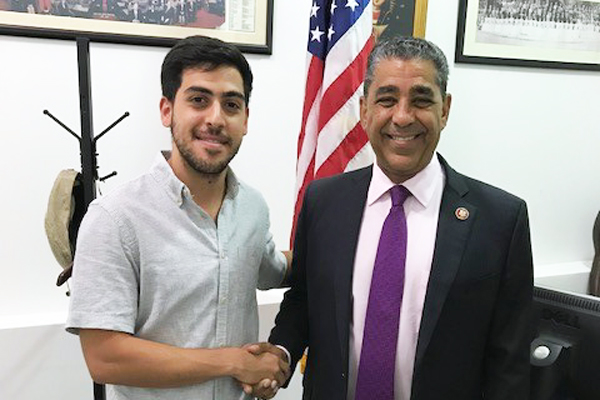 (l-r): Aharon Benchimol and Rep. Adriano Espaillat
(l-r): Aharon Benchimol and Rep. Adriano Espaillat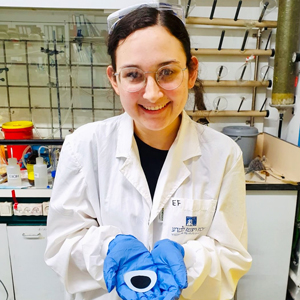 Eliana had a rarefied summer working in the Boris Rybtchinski Lab in the Department of Organic Chemistry at Weizmann Institute of Science in Rehovot, Israel. “My research is in the ‘sustainable nanomaterials’ portion of what the lab does. We combine carbon nanotubes with organic dye nanocrystals to produce a hybrid nanocomposite in the form of a thin film that is electrically conductive and mechanically robust.” These films can be deposited on many surfaces and used as electrodes in energy storage devices. “I worked on a method which recycles the excess dye and solvent in order to make it more environmentally friendly when taken to industrial manufacturing.”
The support for her work came from several sources, including a weekly stipend from Weizmann, housing at the Hebrew University Faculty of Agriculture and a research grant from the Jewish Federation for Education of Women.
“It’s incredible to get to work in such a place as the Weizmann Institute where significant discoveries are being made in real life, all around me,” she enthused. “It’s not every day that one gets to work down the hall from a Nobel Prize winner in chemistry. I love accomplishing new feats—be they big or small, personal or communal—and watching science come to fruition by the very minds and hands of myself and my colleagues. By working, so to speak, ‘behind the scenes,’ I am witnessing the slow, careful, laboratory work that must be done.”
At Stern College, her biochemistry work is on the pre-health track and involves taking rigorous science courses with intensive lab work, averaging about six hours per week per semester. “Joining the lab at Weizmann has given me the opportunity to take all of the skills and knowledge I acquired at Stern and to put them into action in real research. While most of my peers at Stern are also headed to work in healthcare, my colleagues at Weizmann have chosen to invest their time into the science that not only supports but enables healthcare workers to do their work.”
After graduating from Stern, her plan is to attend dental school and specialize in orthodontia. “Working in a material science lab is an appropriate stepping stone to the work I will one day do,” she explained, “because much of what a dentist or orthodontist does requires one to understand the materials he or she is working with, to know the chemical compositions and the relevance of the structures and interactions of the materials.”
Eliana fully acknowledges the influence of her mother on what she has chosen to do. “I have followed my mother’s path. She studied material science engineering at the Massachusetts Institute of Technology and also spent a summer doing research at Weizmann. Similarly, she went into healthcare and is a practicing physician today. My mother says that the time she spent here at Weizmann not only influenced her work but also played a large part in shaping her Jewish identity. I too know that I will look back on this experience with a great appreciation for what it has given me.”
Eliana had a rarefied summer working in the Boris Rybtchinski Lab in the Department of Organic Chemistry at Weizmann Institute of Science in Rehovot, Israel. “My research is in the ‘sustainable nanomaterials’ portion of what the lab does. We combine carbon nanotubes with organic dye nanocrystals to produce a hybrid nanocomposite in the form of a thin film that is electrically conductive and mechanically robust.” These films can be deposited on many surfaces and used as electrodes in energy storage devices. “I worked on a method which recycles the excess dye and solvent in order to make it more environmentally friendly when taken to industrial manufacturing.”
The support for her work came from several sources, including a weekly stipend from Weizmann, housing at the Hebrew University Faculty of Agriculture and a research grant from the Jewish Federation for Education of Women.
“It’s incredible to get to work in such a place as the Weizmann Institute where significant discoveries are being made in real life, all around me,” she enthused. “It’s not every day that one gets to work down the hall from a Nobel Prize winner in chemistry. I love accomplishing new feats—be they big or small, personal or communal—and watching science come to fruition by the very minds and hands of myself and my colleagues. By working, so to speak, ‘behind the scenes,’ I am witnessing the slow, careful, laboratory work that must be done.”
At Stern College, her biochemistry work is on the pre-health track and involves taking rigorous science courses with intensive lab work, averaging about six hours per week per semester. “Joining the lab at Weizmann has given me the opportunity to take all of the skills and knowledge I acquired at Stern and to put them into action in real research. While most of my peers at Stern are also headed to work in healthcare, my colleagues at Weizmann have chosen to invest their time into the science that not only supports but enables healthcare workers to do their work.”
After graduating from Stern, her plan is to attend dental school and specialize in orthodontia. “Working in a material science lab is an appropriate stepping stone to the work I will one day do,” she explained, “because much of what a dentist or orthodontist does requires one to understand the materials he or she is working with, to know the chemical compositions and the relevance of the structures and interactions of the materials.”
Eliana fully acknowledges the influence of her mother on what she has chosen to do. “I have followed my mother’s path. She studied material science engineering at the Massachusetts Institute of Technology and also spent a summer doing research at Weizmann. Similarly, she went into healthcare and is a practicing physician today. My mother says that the time she spent here at Weizmann not only influenced her work but also played a large part in shaping her Jewish identity. I too know that I will look back on this experience with a great appreciation for what it has given me.”
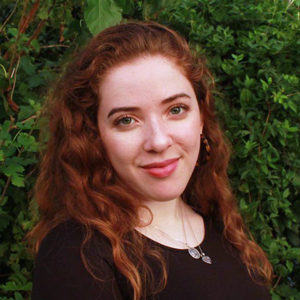 Kayla Garb has been a two-time winner of the YMA Fashion Scholarship Fund, so it made eminent sense for her to pursue an internship in the world of fashion. This summer, she worked as a buyer for Burlington in Men’s Designer Sportswear. “A buyer, in the simplest term, is the person who decides what products to sell in the store,” she explained. The way buyers do this is by going to the market to look at products, buying those that they feel the customer will buy based on style reports of what has sold well, the tastes of the customer and trends in the market as well as taking into account the company’s plans and forecasts.
After buying the product, it is also the buyers’ responsibility to make sure the orders make their way through the distribution channels and to follow up with the vendors if they are behind schedule. “I pretty much shadowed my buyer throughout every stage of this process, and she taught me how to do the work of an assistant buyer. This means going to market, assisting with making purchase orders, analyzing style reports and so on along with some of the more upper-level financial tasks.”
What she loves about the work is how she has to “balance many things, including physically looking at product and having a sense of fashion and awareness of trends as well a strong emphasis on finance and planning. The work incorporates a lot of the managerial ideas that we learned about from our classes, such as being able to negotiate, which is something we use two days a week during our meetings with our vendors. This work has really brought together both my major and minor.”
And the future? “I’m definitely considering buying as an option for me in the future, even though a year ago, I had no idea that being a buyer was even a job. It incorporates everything I want out of a career.”
Kayla Garb has been a two-time winner of the YMA Fashion Scholarship Fund, so it made eminent sense for her to pursue an internship in the world of fashion. This summer, she worked as a buyer for Burlington in Men’s Designer Sportswear. “A buyer, in the simplest term, is the person who decides what products to sell in the store,” she explained. The way buyers do this is by going to the market to look at products, buying those that they feel the customer will buy based on style reports of what has sold well, the tastes of the customer and trends in the market as well as taking into account the company’s plans and forecasts.
After buying the product, it is also the buyers’ responsibility to make sure the orders make their way through the distribution channels and to follow up with the vendors if they are behind schedule. “I pretty much shadowed my buyer throughout every stage of this process, and she taught me how to do the work of an assistant buyer. This means going to market, assisting with making purchase orders, analyzing style reports and so on along with some of the more upper-level financial tasks.”
What she loves about the work is how she has to “balance many things, including physically looking at product and having a sense of fashion and awareness of trends as well a strong emphasis on finance and planning. The work incorporates a lot of the managerial ideas that we learned about from our classes, such as being able to negotiate, which is something we use two days a week during our meetings with our vendors. This work has really brought together both my major and minor.”
And the future? “I’m definitely considering buying as an option for me in the future, even though a year ago, I had no idea that being a buyer was even a job. It incorporates everything I want out of a career.”
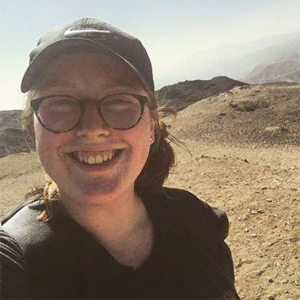 The effort to make life more inclusive for those with disabilities has made great strides over the last several decades, in great measure because of the kind of work done by people like Shira Levitt. She worked at the Bender JCC day camp in Rockville, Maryland, as an “inclusion counselor,” where she shadowed a child with a disability to help him integrate into a traditional camp setting.
“What I loved most about my job,” she observed, “is that I felt like I was making a difference in the lives of not only the kids with disabilities in camp but also for the other kids. I was helping them learn that just because someone is different doesn’t mean they should be separated or isolated.”
She also found an unexpected benefit for her artistic work and a possible new career path. “The job improved my creativity, an essential aspect of being an art major, by putting me in a unique position to be able to help kids understand each other. It has also made me consider minoring in special education and, on a broader scale, made me rethink my overall career goals and how I can use my artistic talents to help those with disabilities.”
Check out Shira’s online portfolio at
The effort to make life more inclusive for those with disabilities has made great strides over the last several decades, in great measure because of the kind of work done by people like Shira Levitt. She worked at the Bender JCC day camp in Rockville, Maryland, as an “inclusion counselor,” where she shadowed a child with a disability to help him integrate into a traditional camp setting.
“What I loved most about my job,” she observed, “is that I felt like I was making a difference in the lives of not only the kids with disabilities in camp but also for the other kids. I was helping them learn that just because someone is different doesn’t mean they should be separated or isolated.”
She also found an unexpected benefit for her artistic work and a possible new career path. “The job improved my creativity, an essential aspect of being an art major, by putting me in a unique position to be able to help kids understand each other. It has also made me consider minoring in special education and, on a broader scale, made me rethink my overall career goals and how I can use my artistic talents to help those with disabilities.”
Check out Shira’s online portfolio at 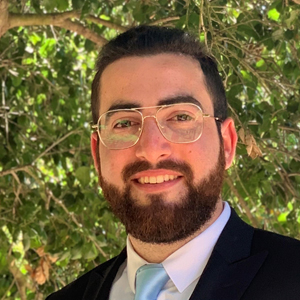 As an IT Automated Intelligence Intern in the office of the Chief Information Officer of Sony Pictures Entertainment, Derek’s goal involved creating “a program that would automate the data analysis process in the Sony Pictures Entertainment database.” The final program was well received, and the database managers plan to use it “very often, to see how far along they are in the company’s data migration.”
As an analytics major, he acquired many practical and technical skills from his work. “I learned Python and some coding for Amazon Web Services, and I experienced how to manage a massive relational database, both of which I don’t get to do much of in the curriculum for my major.”
In addition, “I really learned a lot about how to handle myself in a corporate environment in a way I truly believe will help me in the future.” He expanded his network and hopes to use his new contacts to begin a mentorship at Sony’s New York office, and eventually grow that into an internship and then a full-time job. He also credits the Career Center at YU for the help they gave him creating an eye-catching resume and cover letter and helping prepare him for his interviews.
Perhaps one of the most important lessons he learned this summer had nothing to do with coding or databases. “I spent the whole summer in LA,” he explained, “in a very diverse company of about 3,000 employees, of whom I only met about 10 who were Jewish. Against some advice I received, I wore my kippah every day, and people respected me for it. The company brought me kosher meals when we had intern gatherings, and although I received many questions about my customs, they were never directed with malicious intent. I encourage everyone to hold strong and be proud of their traditions, even in a very non-Jewish environment.”
As an IT Automated Intelligence Intern in the office of the Chief Information Officer of Sony Pictures Entertainment, Derek’s goal involved creating “a program that would automate the data analysis process in the Sony Pictures Entertainment database.” The final program was well received, and the database managers plan to use it “very often, to see how far along they are in the company’s data migration.”
As an analytics major, he acquired many practical and technical skills from his work. “I learned Python and some coding for Amazon Web Services, and I experienced how to manage a massive relational database, both of which I don’t get to do much of in the curriculum for my major.”
In addition, “I really learned a lot about how to handle myself in a corporate environment in a way I truly believe will help me in the future.” He expanded his network and hopes to use his new contacts to begin a mentorship at Sony’s New York office, and eventually grow that into an internship and then a full-time job. He also credits the Career Center at YU for the help they gave him creating an eye-catching resume and cover letter and helping prepare him for his interviews.
Perhaps one of the most important lessons he learned this summer had nothing to do with coding or databases. “I spent the whole summer in LA,” he explained, “in a very diverse company of about 3,000 employees, of whom I only met about 10 who were Jewish. Against some advice I received, I wore my kippah every day, and people respected me for it. The company brought me kosher meals when we had intern gatherings, and although I received many questions about my customs, they were never directed with malicious intent. I encourage everyone to hold strong and be proud of their traditions, even in a very non-Jewish environment.”
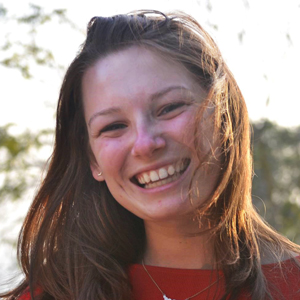 As a student enrolled in pre-law at YU, Ellie Parker had the most appropriate internship possible: working with Judge Ruchie Freier at the Kings County Civil Courts in Brooklyn, New York.
“As the judge’s intern, I was able to watch her on the bench and even sat next to her.” She was also able to do a lot of pro bono work with Ezras Nashim, the first all-female volunteer ambulance service in the Brooklyn headed by Judge Freier, whose code name on the ambulance’s two-way radio service is 93Queen. “I helped compile an ambulance application to the Regional Emergency Medical Services Council of New York City to get Ezras Nashim certified ambulances for use.”
Ellie treasured the the autonomy of her position. “Judge Freier gave me the freedom to speak my mind and ask questions. Additionally, I was able to work freely on projects that were immediately sent out. I feel like I had a real opportunity for change since I was given the reins and expected to produce results.”
In addition to helping Ellie solidify her career path, working with Judge Freier meant that she had the chance to work with “one of the most incredible and inspirational women I have ever met; it was such an honor to be able to work at her side.”
As a student enrolled in pre-law at YU, Ellie Parker had the most appropriate internship possible: working with Judge Ruchie Freier at the Kings County Civil Courts in Brooklyn, New York.
“As the judge’s intern, I was able to watch her on the bench and even sat next to her.” She was also able to do a lot of pro bono work with Ezras Nashim, the first all-female volunteer ambulance service in the Brooklyn headed by Judge Freier, whose code name on the ambulance’s two-way radio service is 93Queen. “I helped compile an ambulance application to the Regional Emergency Medical Services Council of New York City to get Ezras Nashim certified ambulances for use.”
Ellie treasured the the autonomy of her position. “Judge Freier gave me the freedom to speak my mind and ask questions. Additionally, I was able to work freely on projects that were immediately sent out. I feel like I had a real opportunity for change since I was given the reins and expected to produce results.”
In addition to helping Ellie solidify her career path, working with Judge Freier meant that she had the chance to work with “one of the most incredible and inspirational women I have ever met; it was such an honor to be able to work at her side.”
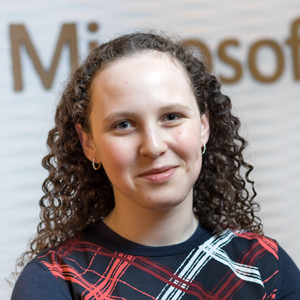 Etta was one of eight students accepted to this year’s eight-week Data Science Summer School, a program at Microsoft Research NYC. “The main goal of the program is to increase diversity in computer science, so the students were from a wide range of backgrounds.” The students spent four weeks on coursework in areas including data science, statistics, and machine learning, then four more weeks on a research project.
“This summer, the focus of our project was to reproduce and extend a research paper about racial disparities in police use of force, especially in New York City, using Stop-and-Frisk data and other datasets.” In addition, “we went on interesting field trips: we visited CTRL-labs, met the chief data scientist at the New York Times, and toured the American Museum of Natural History with the students of an astrophysics data science program there. We also attended talks given by researchers at Microsoft and visiting speakers from outside the lab.”
Etta really enjoyed the people with whom she worked, both the instructors and her fellow students. “I gained many skills there, both computer science/math skills and soft skills such as teamwork and networking. The teachers were amazing, and I've gained a deeper understanding of some things that I knew before such as the math behind some statistical methods.”
While she’s not sure what career path she’d like to pursue after YU, “we had several Q&A sessions with past students at this program, professors from different colleges, and researchers at the lab who addressed questions we had about our futures and about different careers. Hearing about different people's experiences is helpful in considering what path to follow.”
Etta was one of eight students accepted to this year’s eight-week Data Science Summer School, a program at Microsoft Research NYC. “The main goal of the program is to increase diversity in computer science, so the students were from a wide range of backgrounds.” The students spent four weeks on coursework in areas including data science, statistics, and machine learning, then four more weeks on a research project.
“This summer, the focus of our project was to reproduce and extend a research paper about racial disparities in police use of force, especially in New York City, using Stop-and-Frisk data and other datasets.” In addition, “we went on interesting field trips: we visited CTRL-labs, met the chief data scientist at the New York Times, and toured the American Museum of Natural History with the students of an astrophysics data science program there. We also attended talks given by researchers at Microsoft and visiting speakers from outside the lab.”
Etta really enjoyed the people with whom she worked, both the instructors and her fellow students. “I gained many skills there, both computer science/math skills and soft skills such as teamwork and networking. The teachers were amazing, and I've gained a deeper understanding of some things that I knew before such as the math behind some statistical methods.”
While she’s not sure what career path she’d like to pursue after YU, “we had several Q&A sessions with past students at this program, professors from different colleges, and researchers at the lab who addressed questions we had about our futures and about different careers. Hearing about different people's experiences is helpful in considering what path to follow.”
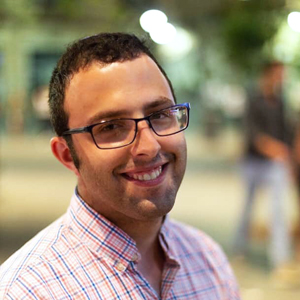 For a person who loves books, especially rare books, David Selis had the perfect internship in the Asian & Middle Eastern Division, Israel & Judaica Section of the Library of Congress, working on initial cataloging for recent Hebrew publications.
“My work involves taking volumes received from vendors, finding a record for them in the Library’s cataloging system and making them findable by assigning a Library of Congress Control Number and barcode. When the volume isn’t in the library’s cataloging system, I find a record using other databases and import that record. Essentially, what I’m doing is the first step in the cataloging process, which allows a volume to be located so that it can be made accessible even if it has not been completely cataloged.”
He also spent two days a week researching early Hebrew books in the Library’s collections as well as in other collections in the Washington, D.C., area with the results of his research being contributed to Footprints, a digital humanities project which traces the movement of Hebrew books. “For me, this work is like being a kid in a candy shop as I can see a first printing of Chumash, then the first book printed in North Africa (which happens to be in Hebrew), early editions of Josephus, a first edition King James Bible, and more.”
He also acknowledged that “none of my research would be possible without the hard work of librarians, catalogers and conservators who make these volumes accessible and preserve them for future generations. There’s something satisfying about making progress on a cataloging project and being able to point to books and say I helped catalog that and find my name in the record. Working with rare books is a distinct privilege, and I never know what I will find; sometimes a few handwritten annotations reveal a chain of ownership that lets me trace part of the book’s unique story.”
David first became interested in rare books at YU while taking a course on the history of the book with Dr. Jeffrey Freedman while volunteering at the library of the Jewish Theological Seminary, “and I just got hooked.” Through a combination of coursework and close connections with professors and mentors, he has been able to acquire a working knowledge of medieval through modern Jewish history and European history during the Renaissance which allows him to contextualize the volumes he researches within their general and Jewish contexts.
“I plan to go into Judaica librarianship professionally, so having experience working in multiple Judaica libraries is invaluable in understanding how they function and the roles of different staff,” he noted. “My dream job would involve working with rare Hebrew books, what’s called special collections, not only by reading the books but also learning about things not on the printed page through such elements as the materiality of the book, any visual elements, how the book is bound and how it might have served as a status symbol.”
For a person who loves books, especially rare books, David Selis had the perfect internship in the Asian & Middle Eastern Division, Israel & Judaica Section of the Library of Congress, working on initial cataloging for recent Hebrew publications.
“My work involves taking volumes received from vendors, finding a record for them in the Library’s cataloging system and making them findable by assigning a Library of Congress Control Number and barcode. When the volume isn’t in the library’s cataloging system, I find a record using other databases and import that record. Essentially, what I’m doing is the first step in the cataloging process, which allows a volume to be located so that it can be made accessible even if it has not been completely cataloged.”
He also spent two days a week researching early Hebrew books in the Library’s collections as well as in other collections in the Washington, D.C., area with the results of his research being contributed to Footprints, a digital humanities project which traces the movement of Hebrew books. “For me, this work is like being a kid in a candy shop as I can see a first printing of Chumash, then the first book printed in North Africa (which happens to be in Hebrew), early editions of Josephus, a first edition King James Bible, and more.”
He also acknowledged that “none of my research would be possible without the hard work of librarians, catalogers and conservators who make these volumes accessible and preserve them for future generations. There’s something satisfying about making progress on a cataloging project and being able to point to books and say I helped catalog that and find my name in the record. Working with rare books is a distinct privilege, and I never know what I will find; sometimes a few handwritten annotations reveal a chain of ownership that lets me trace part of the book’s unique story.”
David first became interested in rare books at YU while taking a course on the history of the book with Dr. Jeffrey Freedman while volunteering at the library of the Jewish Theological Seminary, “and I just got hooked.” Through a combination of coursework and close connections with professors and mentors, he has been able to acquire a working knowledge of medieval through modern Jewish history and European history during the Renaissance which allows him to contextualize the volumes he researches within their general and Jewish contexts.
“I plan to go into Judaica librarianship professionally, so having experience working in multiple Judaica libraries is invaluable in understanding how they function and the roles of different staff,” he noted. “My dream job would involve working with rare Hebrew books, what’s called special collections, not only by reading the books but also learning about things not on the printed page through such elements as the materiality of the book, any visual elements, how the book is bound and how it might have served as a status symbol.”
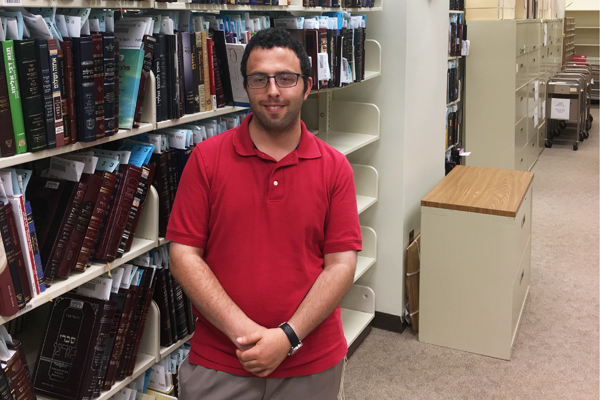 David among his precious books.
David among his precious books.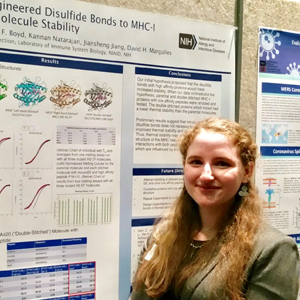 This summer found Sara at a place where she had done work many times before, at the National Institutes of Health (NIH). “I’ve had previous positions at the NIH since high school, due to a program started in Baltimore which helps religious girls get internships and experience they might not otherwise have.” While on the NIH campus, she made connections with the Orthodox Jewish Women’s support group, “which is an excellent network of Jewish girls in science.”
This year, she worked in the National Institute of Allergies and Infectious Diseases, specifically in the Molecular Biology Section of the Laboratory of Immune System Biology. “I’ve been working on experiments looking at the contribution of disulfide bonds to MHC-I molecule stability,” which investigates how these bonds contribute to the stability of proteins.
Her project is something “both new and practical. I’m researching something that isn’t fully understood yet. There’s no known right answer, but I’m helping find one, and that’s incredibly exciting for me! Also, my mentors taught me what to do, and then left me to do it independently as much as possible. I have never learned so much so fast."
She plans to go on to medical school, and “what I covered this summer will definitely help me better understand all of my future chemistry and biology classes.”
She also compliments her NIH colleagues for their openness and generosity. “Doctors and scientists who research for the government, especially at the NIH, have a ton to share and are incredibly friendly and willing to share it. All researchers are, as we like to say, ‘nerds,’ and they’ll talk forever and with joy in their eyes about their research. At NIH, everyone’s important and helping the future of medicine in some way, so everyone is respected, from the patient to the doctor, the janitor to the intern. There’s been no better place to experience both science and kindness.”
This summer found Sara at a place where she had done work many times before, at the National Institutes of Health (NIH). “I’ve had previous positions at the NIH since high school, due to a program started in Baltimore which helps religious girls get internships and experience they might not otherwise have.” While on the NIH campus, she made connections with the Orthodox Jewish Women’s support group, “which is an excellent network of Jewish girls in science.”
This year, she worked in the National Institute of Allergies and Infectious Diseases, specifically in the Molecular Biology Section of the Laboratory of Immune System Biology. “I’ve been working on experiments looking at the contribution of disulfide bonds to MHC-I molecule stability,” which investigates how these bonds contribute to the stability of proteins.
Her project is something “both new and practical. I’m researching something that isn’t fully understood yet. There’s no known right answer, but I’m helping find one, and that’s incredibly exciting for me! Also, my mentors taught me what to do, and then left me to do it independently as much as possible. I have never learned so much so fast."
She plans to go on to medical school, and “what I covered this summer will definitely help me better understand all of my future chemistry and biology classes.”
She also compliments her NIH colleagues for their openness and generosity. “Doctors and scientists who research for the government, especially at the NIH, have a ton to share and are incredibly friendly and willing to share it. All researchers are, as we like to say, ‘nerds,’ and they’ll talk forever and with joy in their eyes about their research. At NIH, everyone’s important and helping the future of medicine in some way, so everyone is respected, from the patient to the doctor, the janitor to the intern. There’s been no better place to experience both science and kindness.”
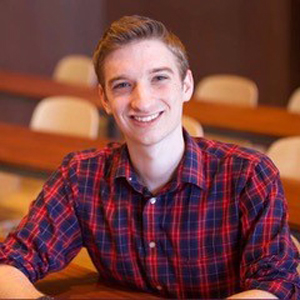 Tzvi worked with BrandTotal, a company founded and managed by Alon Leibovitch. He met Leibovitch in his marketing class, and through that connection was able to secure a slot in the company.
“I worked in marketing and sales. I helped curate outbound marketing qualified leads to send off to our outsourced lead contact company. I also worked on a Linkedin marketing campaign and did a company SWOT analysis (Strengths/Weaknesses/Opportunities/Threats).
Tzvi loved “being involved in a very cool company” and “knowing that everything I do can make a big difference because we are a startup.”
While he felt that the work he did was more in line with his marketing minor, “skills that I gained from business communications as well as a foundation in Excel definitely helped me in my work.”
He also enjoyed learning outside of the actual tasks he had to perform, “such as better ways of relating to others in a professional context as well as gaining great connections to the Israeli world,” useful to someone who plans to make aliyah [a move to Israel] eventually.
“I am very thankful to YU for the connection that was made which was instrumental in securing my internship for this past summer.”
Tzvi worked with BrandTotal, a company founded and managed by Alon Leibovitch. He met Leibovitch in his marketing class, and through that connection was able to secure a slot in the company.
“I worked in marketing and sales. I helped curate outbound marketing qualified leads to send off to our outsourced lead contact company. I also worked on a Linkedin marketing campaign and did a company SWOT analysis (Strengths/Weaknesses/Opportunities/Threats).
Tzvi loved “being involved in a very cool company” and “knowing that everything I do can make a big difference because we are a startup.”
While he felt that the work he did was more in line with his marketing minor, “skills that I gained from business communications as well as a foundation in Excel definitely helped me in my work.”
He also enjoyed learning outside of the actual tasks he had to perform, “such as better ways of relating to others in a professional context as well as gaining great connections to the Israeli world,” useful to someone who plans to make aliyah [a move to Israel] eventually.
“I am very thankful to YU for the connection that was made which was instrumental in securing my internship for this past summer.”
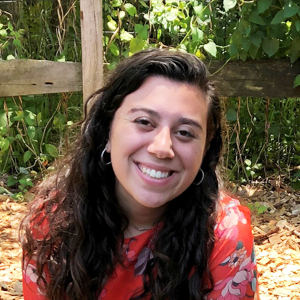 Reena was able to secure a position at the Washington Institute for Near East Policy as an Azrieli Fellow in Public and International Affairs. “I worked for David Makovsky, director of the Project on Arab-Israel Relations, doing research and writing briefings for a proposed podcast on the historical relationship between Israel and America.”
The project was an enormous amount of work, but because “I love learning about the Middle East and gaining a greater understanding of the history and how it affects present-day reality, I felt that my time was being used well.” She also loved just being at the Institute and having access to the work it is doing. “I was constantly going to events in the Institute and hearing from interesting speakers who discussed a wide range of topics about every aspect of the Middle East.” This kind of access is perfect for a political science major because “the knowledge and skills that I am gaining is supplementing my previous understanding of the Middle East.”
After she graduates, Reena plans to move to Israel, and her work for the Institute will have prepared her well for her next journey in life.
Reena was able to secure a position at the Washington Institute for Near East Policy as an Azrieli Fellow in Public and International Affairs. “I worked for David Makovsky, director of the Project on Arab-Israel Relations, doing research and writing briefings for a proposed podcast on the historical relationship between Israel and America.”
The project was an enormous amount of work, but because “I love learning about the Middle East and gaining a greater understanding of the history and how it affects present-day reality, I felt that my time was being used well.” She also loved just being at the Institute and having access to the work it is doing. “I was constantly going to events in the Institute and hearing from interesting speakers who discussed a wide range of topics about every aspect of the Middle East.” This kind of access is perfect for a political science major because “the knowledge and skills that I am gaining is supplementing my previous understanding of the Middle East.”
After she graduates, Reena plans to move to Israel, and her work for the Institute will have prepared her well for her next journey in life.